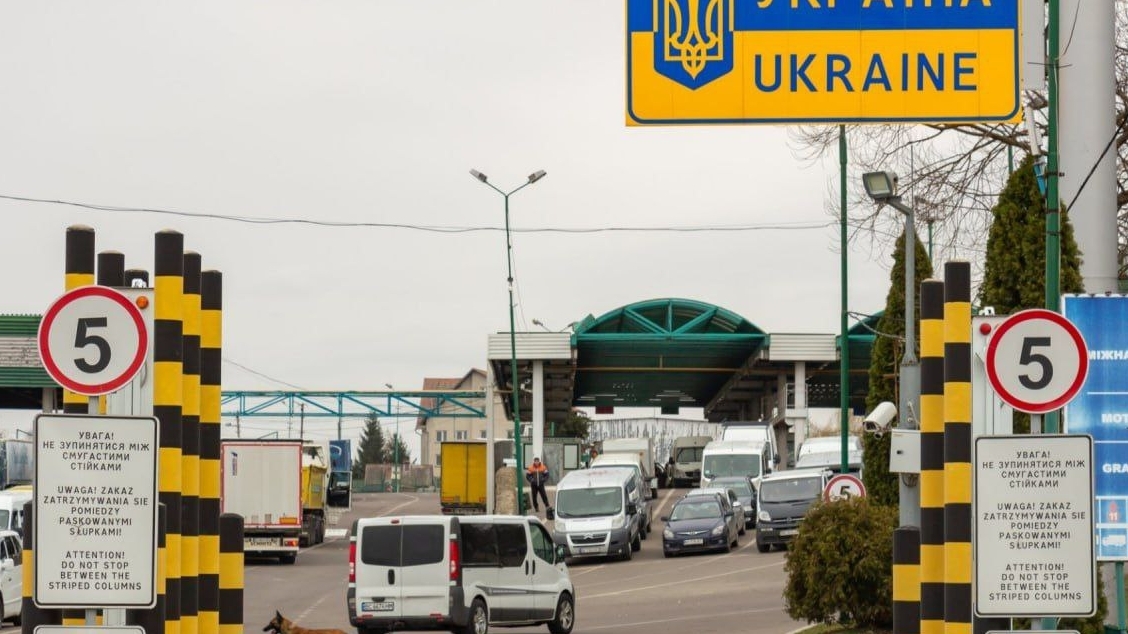Controversies surrounding Ukrainian travel restrictions and mobilization proposals
Estimated reading time: 4 minutes
Recent reports in Ukrainian media have suggested travel restrictions for specific groups, including men with disabilities and fathers of large families, particularly to Poland.

The queue at the border is getting longer and longer
There have been reports in Ukrainian media that certain groups, including men with disabilities in group 3 and fathers of large families, are not allowed to travel abroad, including to Poland. Ukrainian border guards, however, deny these claims.
On Saturday, social media and local Ukrainian news outlets reported that men with disabilities in group 3 were denied entry into Poland. A similar situation was said to apply to parents of large families and caregivers of disabled individuals.
Reports of travel restrictions and border crossings
It was also reported that the Ukrainian side temporarily closed some border crossings. Recordings have been published, including footage from the Jagodza crossing where a queue of people, mainly women, was unable to cross to the Polish side.
Additionally, at the Sheginie-Medyka crossing, a group of Ukrainians was reportedly planning a protest against the travel restrictions from Ukraine. There were also reports of about 20 men being removed from the Kiev-Przemyśl train by authorities. Increased document control for individuals seeking to leave under the "Szlach" (Road) system was also mentioned.
According to information from certain Ukrainian media sources, individuals with a 3rd disability group are not allowed to cross the border without confirmation of deferment by the military in appropriate documents (excluding those with clear signs of disability). Similar restrictions are said to apply to fathers of large families or single parents. Regarding the Szlach system, only those traveling abroad for humanitarian purposes and those who had previously traveled as volunteers with humanitarian aid were reportedly allowed to leave. Additionally, individuals with temporary exemption from mobilization for health reasons and those who recently obtained a residence permit from another country were said to be restricted from entering.
These reports are linked to changes in Ukrainian legislation on mobilization. According to Ukrainian media, authorities plan to abandon the concept of “limited fitness” and conscript individuals with a disability in group 3 into the army. The project has been registered in parliament but is not yet being processed.
The State Border Service of Ukraine has assured that the rules for crossing the border for persons with disabilities in the 3rd group have not changed. Ukrainian border guards assert that reports of these individuals being prohibited from leaving the country are mere rumors. Border service spokesman Andriy Demchenko noted that Ukrainian officers carefully check departing individuals.
“Since the beginning of the year alone, almost 50,000 people have been refused entry at the border, including Ukrainian citizens who did not meet the conditions for departure. Additionally, 3,000 forged documents were detected"
Demchenko said.
A bill on mobilization was submitted to the Verkhovna Rada, outlining new rules for mobilization and military service. Deputies are scheduled to discuss it on January 10, 2024. The project proposes lowering the conscription age from 27 to 25, introducing electronic summons, and mobilizing some individuals with disabilities, along with registration for Ukrainians living abroad. The draft also plans to implement restrictions on the civil rights of Ukrainians who evade registration and military service, such as a ban on traveling abroad, difficulties in obtaining a driving license, and a ban on concluding loan agreements.
The draft mobilization law stipulates that all Ukrainian passport holders staying in European Union member states will have to undergo a military service suitability test, irrespective of their health condition and place of residence. Serious restrictions are proposed in case of failure to fulfill the obligation of military service, including a ban on bank loans, real estate registration, or access to state offices. Failure to perform duties or undergo medical examinations may result in 3 to 5 years of imprisonment. Notifications about mandatory tests can be sent via email or even SMS. "Lavirants" are also to be entered in the register of debtors.
Earlier this month, Ukrainian President Volodymyr Zelensky stated that the Ukrainian Supreme Command is requesting the conscription of an additional 450,000 people into the army.
Defence Minister Rustem Umerov later mentioned that the Ukrainian army needs more personnel to significantly strengthen the line of contact with Russian troops, which currently stretches over 3,000 kilometers. On Monday, the leader of the parliamentary faction of the pro-presidential Servant of the People party, David Arachamija, claimed that the Ukrainian command had submitted a request to mobilize half a million people in the future. He also asserted that the government is working on it, and an appropriate draft regarding the rules of mobilization will be submitted to parliament soon.
The commander-in-chief of the Ukrainian army, General Valery Zaluzhny, disputes President Zelensky's statement, claiming that the high command did not request the Ukrainian government to mobilize half a million people.



